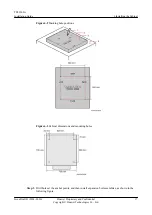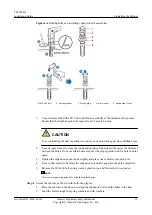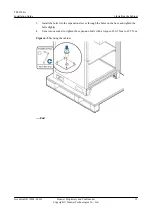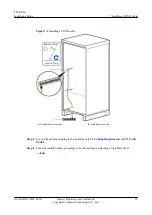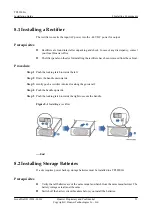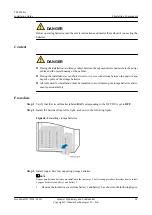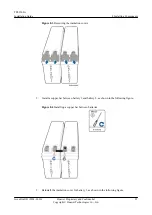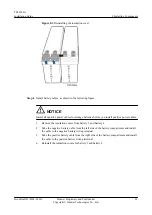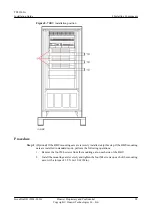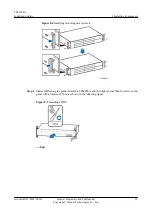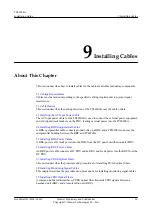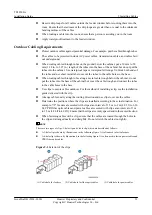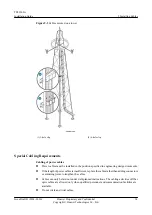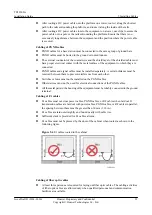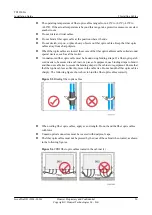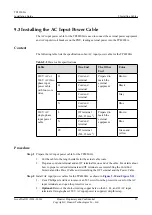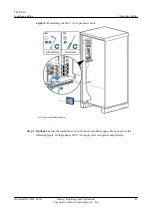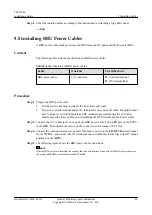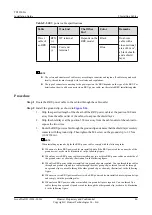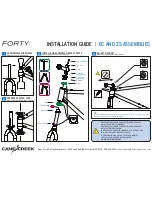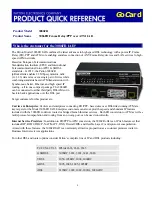
9.1 Cabling Requirements
Cables must be laid out according to the specified cabling requirements to prevent signal
interference.
NOTE
If a cable listed below is not required, skip the cabling requirements of the cable.
General Cabling Requirements
Bending radius requirements
l
The bending radius of a 7/8'' feeder must be greater than 250 mm (9.84 in.), and the bending
radius of a 5/4'' feeder must be greater than 380 mm (14.96 in.).
l
The bending radius of a 1/4'' jumper must be greater than 35 mm (1.38 in.). The bending
radius of a super-flexible 1/2'' jumper must be greater than 50 mm (1.97 in.), and the bending
radius of an ordinary 1/2'' jumper must be greater than 127 mm (5 in.).
l
The bending radius of a power cable or PGND cable must be at least three times its diameter.
l
The bending radius of a fiber optic cable is at least 20 times of its diameter, and the bending
radius of a breakout cable is at least 30 mm (1.18 in.).
l
The bending radius of an E1/T1 cable must be at least three times its diameter.
l
The bending radius of a signal cable must be at least five times its diameter.
Cable binding requirements
l
Cables of the same type must be bound together.
l
Different types of cables must be separately laid out and bound, with a minimum distance
of 30 mm (1.18 in.) from each other.
l
The cables must be bound tightly and neatly. The sheaths of the cables must not be damaged.
l
The cable ties must face the same direction, and those at the same horizontal line must be
in a straight line.
l
The excess of the indoor cable ties is cut off. The excess of 5 mm (0.197 in.) of the outdoor
cable ties is reserved, and the cut surfaces are smooth without sharp edges.
l
After cables are installed, labels or nameplates must be attached to the cables at their ends,
curves, and interconnection positions.
Security requirements
l
When routing cables, avoid sharp objects, for example sharp edges on the wall. If necessary,
use tubes to protect the cables.
l
When routing cables, keep the cables away from heat sources and use heat insulation
materials to insulate the cables from the heat sources.
l
Reserve a proper distance (0.1 m or 3.937 in. is recommended) between equipment and
cables especially at the cable curves to protect the cables and equipment.
Indoor cabling requirements
l
Route each cable into the room through the feeder window.
TP48200A
Installation Guide
9 Installing Cables
Issue Draft B (2014-01-20)
Huawei Proprietary and Confidential
Copyright © Huawei Technologies Co., Ltd.
31

